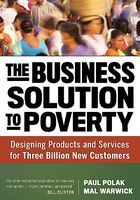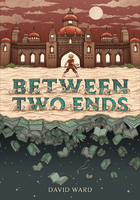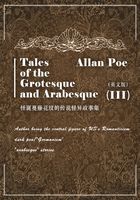FOR TWO WEEKS AFTER THE FISHING TRIP I HEARD NOTHING from Karl.
Had I upset him? Was he sorry he'd told me about his father? Did he wish he hadn't shared the ritual at the end?
Every day I checked my emails, hoping to see his name, and kept my mobile phone beside me in case he sent a text.
I was surprised at myself. Yet not surprised. I knew he was helping me as much as I hoped I could help him, though he didn't know how, and I still wasn't certain myself.
In the few days after our trip I boned up on dyslexia, wanting to learn more than the sketchy general knowledge I already had.
I can't think without making notes, so I listed what I found out:
–Dyslexia takes many forms.
–There's no one condition you can call dyslexia.
–There isn't even agreement on what the word means, except that it comes from an old Greek word meaning "difficulty with words and language."
–People with dyslexia usually have trouble with spelling, sometimes reverse numbers and letters—confusing d and b, for example—and have difficulty with cursive (joined up) writing.
–They have difficulty putting their thoughts down on paper—writing is often torture to them.
–They are often slow readers, and often need to read the same passage two or three times before they can understand it.
–They often mix up left and right, sometimes have difficulty finding their way around, even in familiar surroundings.
–They sometimes have difficulty finding the correct word, so they say "whatyoucallit" and "thingies," and get ordinary words twisted.
–Their vocabulary is often limited. They don't know as many words as they should. They suffer from verbal poverty.
–Because they have had difficulty with reading and writing, they feel they are failures, suffer from low self-esteem and embarrassment, and think they must be stupid. This is often reinforced by the way people treat them, especially if teachers do not understand their condition. Therefore they lack self-confidence.
It was obvious that Karl suffered from some of these symptoms. Even though he'd only shown me printouts of his writing, when he must have used the spell-checker, I could tell he'd struggled when composing sentences and ordering his thoughts.
But when he talked about something that really interested him, like fishing or plumbing, he was fluent and mature and entirely coherent. You'd never have known he had trouble with words. His vocabulary was far from limited. I knew from his driving that he had no trouble with left and right or finding his way. As a plumber his hand-eye coordination must be good, as I knew it was from watching him fish. Yes, he didn't like talking about his feelings, but many people don't who are not dyslexic.
There was a plethora of guff on the internet about dyslexia, thousands of references. But as usual, finding clear and brief answers to straightforward and simple questions wasn't so easy.
What was certain, which I had already thought for myself but which the experts confirmed, was how best you can help someone who is dyslexic.
They all mentioned the frustration sufferers feel when they are clever, as Karl certainly was, but can't be clever in reading and writing.
Their difficulties are caused by a difference in their brain and the way it works, not because they are lazy or stupid.
They need to be sure you won't make fun of their difficulties, or do anything that makes them look silly in front of others.
Most of all, you need to give them confidence, and to know, really know, that they aren't odd or stupid or have a weird illness.
What they have is different from most people, but is not a disability. In fact, because of their difficulty with language their brains open up new pathways that the brains of the rest of us don't. And those pathways often enable them to be more creative than people who aren't dyslexic.
I was sympathetic with Karl because I'd had trouble with reading and writing when I was a kid. Bad spelling, a slow reader. In fact, couldn't read at all till I was eight. In those days, ordinary people, including teachers, had never heard of dyslexia. So teachers especially thought you were "dull," "not very clever," "thick." "He's a little slow" was how a teacher expressed it to my worried mother. She meant I was halfway to being the village idiot. Not so, as it turned out. I don't blame her. She didn't know better. But that didn't prevent me feeling I was a dead loss, a failure at the two things everybody knows are the most important in our word-dominated society: being able to read and write well.
But something bothered me. Yes, it was true that he showed some of the signs of dyslexia, but not to a serious extreme. And, yes, he was finding ways of dealing with the difficulties—his brain must be opening up the new pathways. And, yes, the last thing you'd say about him was that he was slow-witted. Quite the opposite. He was clever, thoughtful and creative. But I sensed it wasn't only dyslexia that troubled him. It wasn't dyslexia that was jamming up his feelings about himself. And it wasn't dyslexia that prevented him talking about himself. As a recovered dyslexic, I know that I've never been shy of talking about myself and my deepest feelings—so long as it was to someone I liked and trusted.
Of course, he might not want to talk about himself because he was happier keeping himself to himself.
But that's not what I sensed with Karl. I became convinced he was bottling up a brew of strong feelings that he wanted to let out but couldn't. There'd been three or four times when I felt he might explode. And one moment when he had. The moment by the river when he talked about the death of his father. Then I'd caught a glimpse of his inner self. And he was no longer an eighteen-year-old young man, expert at fishing, competent as a plumber, no doubt tough on the rugby field, and good at chess—the young man Fiorella had no doubt fallen for. But instead, he was a little boy, a distressed twelve-year-old, vulnerable, hurt, and grieving.
Hang on, though, I told myself. You could be wrong. It's always a mistake to think you know what makes someone tick.
Karl was right. Actions speak louder than words. When all is said and done, you can only go by what people do, not by what they say.
Now, two weeks after the revelation of his father's death, I'd heard nothing from him. This action, this silence, meant more than words.
But then, just when I'd decided he wanted nothing more to do with me, his name popped up on my screen.
His email's subject line said:
Fiorellas poem
His message read:
Fiorella sent me this poem, is it any good, don't know much about poems, hope you ok, meet tuesday 8?
Not shut out after all!
One of my weaknesses is always to fear the worst. And another is to think that anything that goes wrong is my fault.
I replied:
Tuesday. 8:00 p.m. Meal at the pub? My treat.
He replied pronto:
ok but on me
Here's the poem:
Two poems for Karl
1
Do you believe—
As I believe—
What there is
Is all there is?
Do you believe—
As I believe—
That we are
More than we
Yet know?
Do you believe—
As I believe—
You are
Who I would know
And I am
Who you would know
So you can be
What you are
And I can be
What I am?
2
I would be known
As known as
Knowing can be
By you
Who knows
How knowing is
That knows
No knowing.
And I would know
As known as
Knowing can be
The you
Who keeps me
From knowing
The you
Who knows
No knowing.















